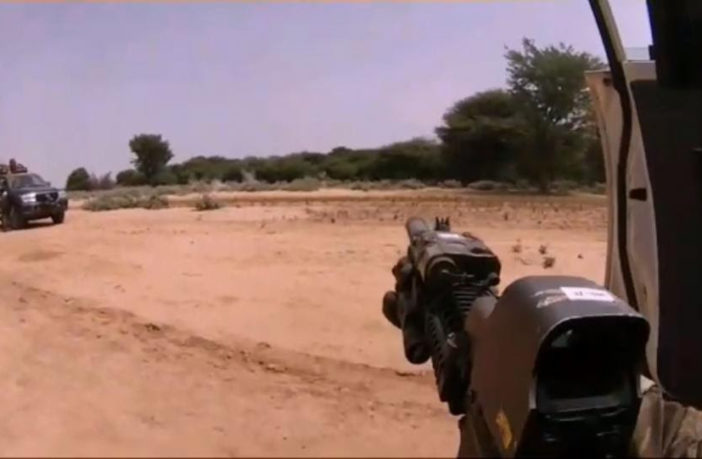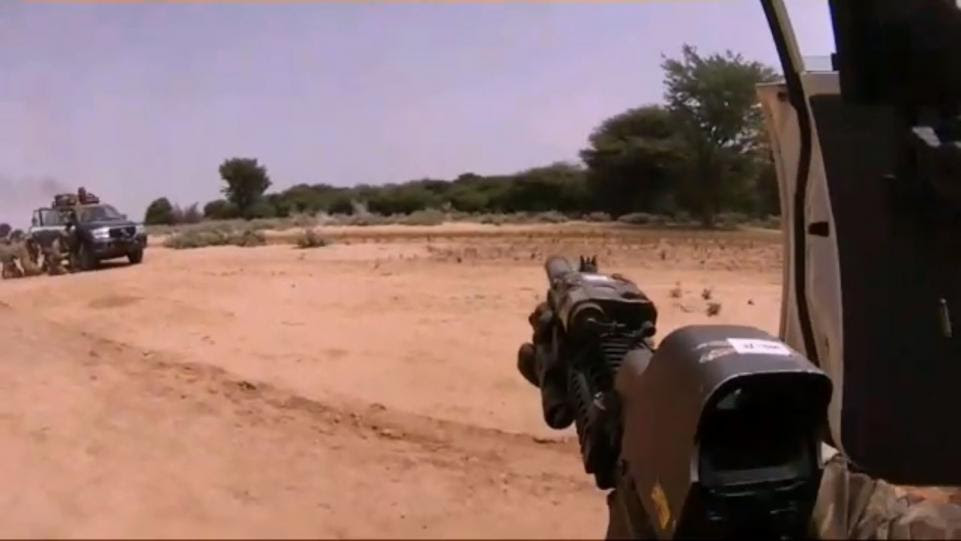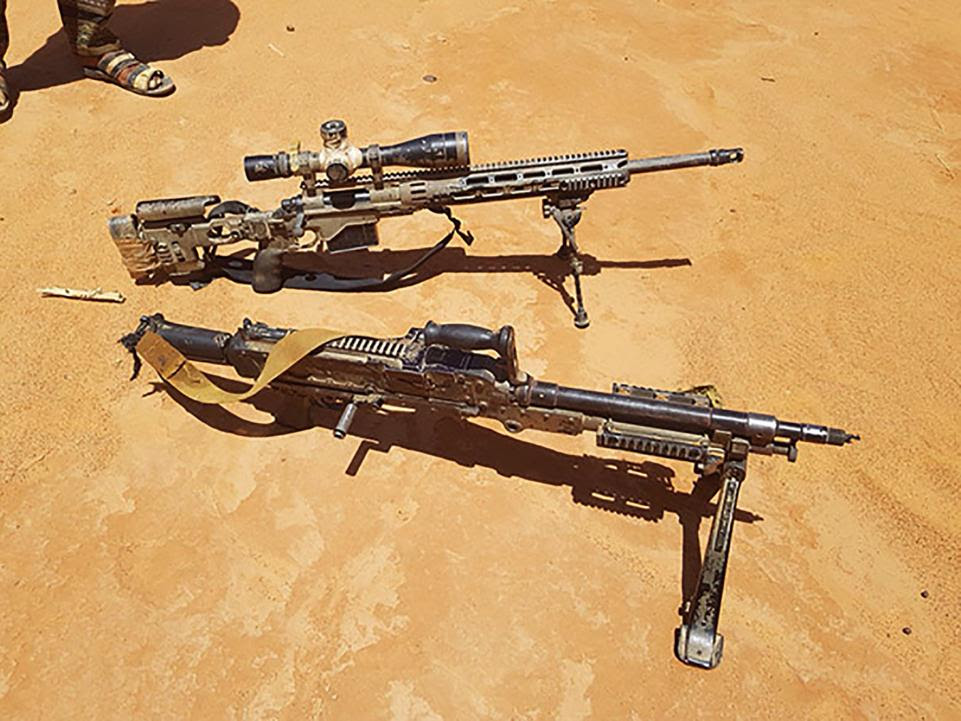Newsweek
By Tom O’Connor
The team of U.S. soldiers targeted last year by a deadly Islamic State militant group (ISIS) ambush in Niger did not have the proper equipment for their mission and were deployed without the proper authorization, according to a new report.
Citing Pentagon officials speaking under the condition of anonymity, The New York Times reported Monday on the findings of a preliminary Defense Department investigation into a surprise attack that killed four U.S. and five Nigerien troops and injured two more U.S. and eight Nigerians on October 4, 2017, near the Nigerien village of Tongo Tongo, located by the Western African state’s border with Mali.
Related: Man Who Uncovered ISIS Niger Ambush Tape Says U.S. Military Made Things Worse in West Africa
The inquiry reportedly turned up major flaws in the operation, ones that may have contributed to the deaths of the U.S. servicemen.
A still image from the ISIS video “Assault of the Brave Against the Army of the Americans” shows U.S. Special Forces attempting to flee an ambush from up to 50 ISIS-affiliated fighters near the border village of Tongo Tongo, Niger, October 4, 2017. SOCIAL MEDIA
The U.S. troops of Operational Detachment-Alpha Team 3212 were originally instructed to conduct a routine patrol before being reassigned to hunt a notorious jihadi by a junior officer, according to two unnamed Defense Department officials cited in the article. Such an order should have been only been approved after being sent up the ranks all the way to U.S. African Command headquarters in Stuttgart, Germany.
The junior officer was filling in for his superior who was on paternity leave at the time and holding an equal rank to Team 3212 Captain Michael Perozeni, the report indicated.
Keep up with this story and more by subscribing now
The two officials maintained that neither AFRICOM nor the relevant Special Operations Command authorities in Germany or Chad knew of the change of plans, which would have required extensive approval from higher-ups. Switching a daytime reconnaissance mission to an overnight kill-or-capture for an individual such as ISIS-linked militant Doundou Chefou would require additional medical evacuation support and other assistance. The team would have their movements tracked by via communications channels and GPS.
Perozeni reportedly warned that his team was ill-equipped and working on insufficient intelligence, but ultimately followed orders.
After stopping for water on the way back from Chefou’s camp, 12 Green Berets of Team 3212 and 30 of their Nigerien allies came under fire from up to 50 jihadis linked to ISIS in the Greater Sahara. Perozeni and radio operator Sergeant First Class Brent Bartels were reportedly shot and wounded early on in the attack, but survived. Staff Sergeant Bryan Black, Staff Sergeant Jeremiah Johnson, Sergeant La David Johnson and Staff Sergeant Dustin Wright were killed.
This image taken on on March 17, 2018, in Menaka, Mali, shows a M14 automatic rifle (TOP) and a M240-SLR (FRONT) machine gun which were recovered during an operation conducted by militants of the Azawad National Liberation Movement and said to have belonged to four U.S. soldiers killed during an ambush in the Tongo Tongo area in West Niger on October 4, 2017. STRINGER/AFP/Getty Images
Footage of the attack was captured by helmet cameras worn by the troops and was later incorporated into a propaganda video released last month by ISIS, which had not claimed responsibility for the attack until January. The ambush and release of the grisly ISIS video have prompted a national debate over the U.S. role in Niger and Africa in general, especially after news broke of a second firefight between U.S. personnel and ISIS-aligned fighters in December.
The Pentagon delayed the initial January release date of its findings into the October 4 incident near Tongo Tongo. One official cited in The Times article said Marine Corps General Joseph Dunford, chairman of the Joint Chiefs of Staff, would review them before being made public. Defense Secretary James Mattis reportedly said he expected answers to his own questions by Monday and was awaiting Dunford’s advice on the results of the investigation.









